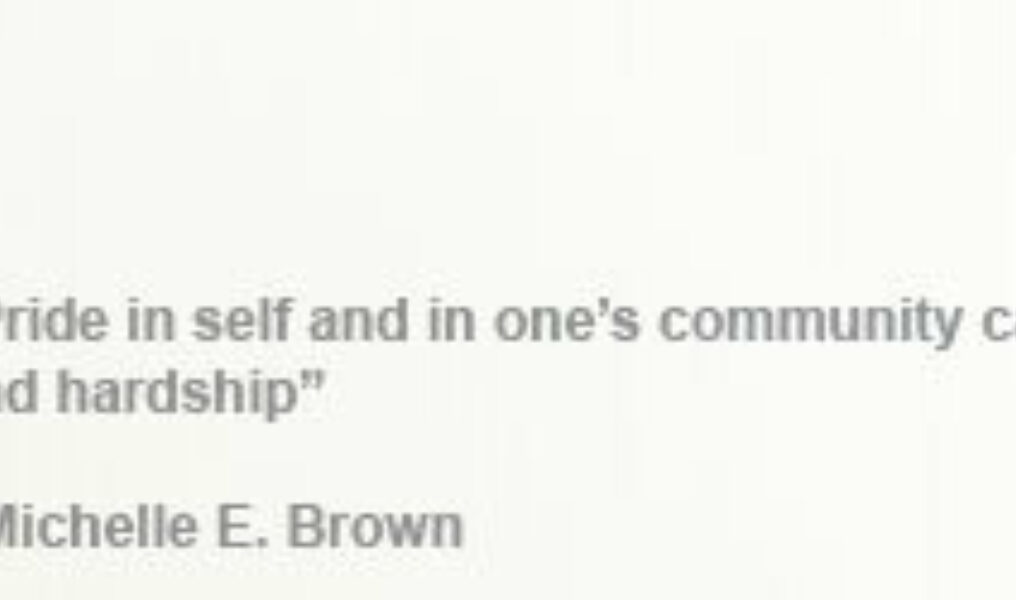
Viewpoint
Sometimes it's not enough just to be here and queer. Sometimes you have to show up and show out to tear down the curtain of homophobia and show the depth and breadth of our community in the fabric of America.
We all get tired of the stereotypes, but often by our silence we perpetuate the image of "gay" as a white, primarily male and affluent community. Case in point: OUT Magazine's "Power 50" and their take on the fifty most powerful/influential LGBT people in mainstream society published in April. There wasn't a single person of color on this year's list and, rightly so, our community pushed back, resulting with OUT's publishing "The Hidden 105" and identifying leadership by people of color and transgender members of the LGBT community.
Our LGBT community, like the community-at-large, benefits from and is strengthened by its diversity. Unfortunately while those of us within the LGBT community receive frequent reminders through our outstanding leadership of all races and ethnicities, the community at large is missing the message that America benefits and is strengthened by its LGBT community.
Ignorance, denial and fear have led many in the heterosexual community to look at the LGBT community as a threat, a sin, something unnatural. This is particularly true in the African-American community where being out and open can be not just unbearable but life-threatening.
We, LGBT African-Americans, are invisible in our own community and for years we have wrapped this cloak of invisibility tightly around our private worlds to avoid the backlash at home in our neighborhoods and churches. Being in the closet at work is as hurtful and inauthentic as being closeted in your community but it's just something we all choose to just not talk about.
Black Enterprise, a monthly magazine, is considered the premier business and investment resource for African-Americans. Aspiring African-American professionals, myself included, have since 1970 turned to BE to find our black success stories – those, who against the same odds we faced in our lives, had not just survived but thrived. They headed companies, had their own African-American firms and were otherwise noteworthy. The magazine in effect said this is not beyond your grasp and YES YOU CAN long before the possibility of a Barack Obama was even fathomed. And although some of these leaders may have been and probably are LGBT, that aspect of their life was kept way in the back of BE's closet. But all that is about to change with July's issue of Black Enterprise magazine.
There's a healthy class of educated African-Americans that for the most part has received no recognition of their existence, but it's a new day for the gay, gifted and black. Working with the National Black Justice Coalition, Black Enterprise set about telling the story "Black and gay in corporate America: breaking through isolation and fear." This is the latest and perhaps the most influential coverage of the black LGBT community in mainstream publications, sending shockwaves through the black community and blowing open the doors of those closets.
In February this year both Essence and Ebony magazines featured the stories of two African-American lesbian couples on the journey from love to marriage. Tackling marriage was big, but shattering the myth that the only career path for black gays was choir director or hairdresser – now that's huge. But that's just what Black Enterprise is doing. Profiled are executives in for-profits, non-profits and foundations including GM, the Arcus Foundation and American Express. They are influencing policies not just at their employers, but through affinity groups and even at historically black colleges. At the work place being out has freed them to be more productive, creative and innovative, and hopefully through BE they will start to bring the same freedom, creativity and innovation home to their communities – by knocking down stereotypes, inspiring youth, and building dreams.
"Coming out" remains part of the evolutionary process of all communities. Pride in self and in one's community can overcome hatred and hardship while inspiring a community to be bigger than the limited space a majority may have segregated for the minority.
Black Enterprise continues to be the premier business and investment resource for African-Americans. By turning its focus on blacks and gays in corporate America, it has opened the doors wide so that all African-Americans, including black LGBT youth, can see a world of success and opportunity, all while saying to the African-American community, "these are your sons and daughters too. Aren't you proud of what we as a people can accomplish? Open your eyes, open your arms and open your hearts, Black America"










